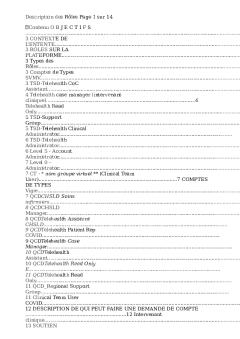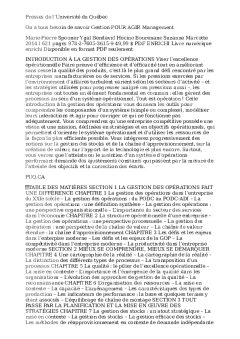utilitarisme pragmatique et reconnaissance d x27 intention dans les actes de langage indirects
Utilitarisme pragmatique et reconnaissance d ? intention dans les actes de langage indirects ? Éric Raufaste Dominique Longin Jean-François Bonnefon -Laboratoire Travail et Cognition UMR Université de Toulouse-Le-Mirail Toulouse II -Institut de Recherches en Informatique de Toulouse UMR Université Paul Sabatier Toulouse III Résumé Après un rappel sur les actes de langage indirects et le traitement classique de ce problème nous proposons une approche utilitariste de la reconnaissance d ? intention dans le langage verbal Cette approche combine une heuristique utilitariste ? basée sur la distribution d ? utilité du locuteur inférée à partir du contexte et une heuristique conventionnaliste ? basée sur la reconnaissance de propriétés spéci ?ques de l ? énoncé cible Cette approche est mise en perspective avec d ? autres approches récentes de la littérature en sciences cognitives Mots-clés reconnaissance d ? intention actes de langage pertinence heuristiques compréhension Abstract The so-called ??standard pragmatic view ? of intention recognition in indirect speech acts was largely discon ?rmed by psycholinguistic research Gibbs We propose a utilitarianist approach to pragmatics Basically the framework proposed here assumes that both utterance production and intention recognition can be viewed as a decision-making problem using subjective expected utility We assume that as part of the standard equipment of a normal adult ? s theory of mind is included the idea that individuals act so as to maximize their well- being while minimizing su ?ering We then de ?ne the idea of utilitarian context as a collection of contextual elements that provide information about the speaker ? s distribution of utility over the possible behavioral responses of the listener Hence the utilitarian context enables the listener building a representation of the speaker ? s distribution of utility For the listener using the utilitarian heuristic consists of attributing the intent to obtain the state of the world that presumably maximizes the speaker ? s expected utility In some neutral contexts however the distribution of utility cannot be built and therefore the utilitarian heuristic cannot be used In such cases the speaker may recognize a form of indirection in the utterance form that is conventionally associated with a speci ?c intent The listener uses the conventionalist heuristic when attributing the intent that is conventionally associated with that particular form of indirection We present the notion of ??indirection schemes ? de ?ned as logical rules that select the intent conventionally associated with the form of indirection of the focal utterance or the intent with the maximum expected utility to the meaning of the focal utterance ? Ce travail a été soutenu ?nancièrement par le Programme Interdisciplinaire TCAN CFinally our approach is contrasted with other approaches to intention recognition that have been used in cognitive science Keywords intention recognition speech acts relevance heuristics understanding CIntroduction Cet article concerne les processus de reconnaissance de l ? intention sous-jacente à la production d ? un énoncé isolé Nous ne traiterons pas de l ? ensemble des processus de l ? interlocution ce qui impliquerait de modéliser la négociation des
Documents similaires










-
67
-
0
-
0
Licence et utilisation
Gratuit pour un usage personnel Aucune attribution requise- Détails
- Publié le Sep 18, 2022
- Catégorie Management
- Langue French
- Taille du fichier 76.8kB


